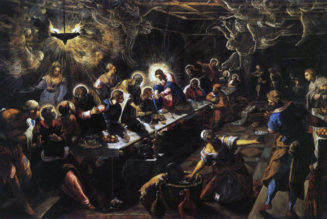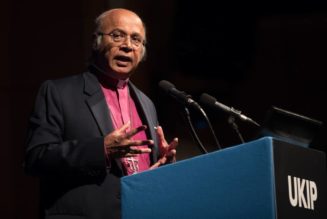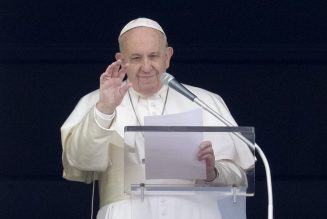By Phil Lawler ( bio – articles – email ) | Jun 02, 2021
The rumors are true. My sources in Rome—too many and too reliable to be doubted—confirm that a document is circulating at the Vatican which, if given papal approval, would significantly restrict use the “extraordinary form” of the liturgy, the traditional Latin Mass (TLM).
This document is in draft form. It could be amended. It might never be released. But it would not even be under discussion without at least tacit approval (if not active support) from Pope Francis. And if it is released in anything like its current form, it would be a pastoral and doctrinal disaster. It would thwart a powerful movement for reform in the Church, and it would—paradoxically—undermine the Pope’s own authority.
Let me explain.
In Summorum Pontificum, his apostolic letter of 2007, Pope Benedict XVI gave the Catholic faithful much wider access to the TLM. With this new document, styled as an “instruction” for the “implementation” of Summorum Pontificum, Pope Francis would in effect repudiate the work of his predecessor, and at the same time cut off the blood supply to the fastest-growing part of the universal Church.
Pope Benedict wrote Summorum Pontificum because he recognized, in the growing demand for the traditional liturgy, an authentic movement of the Holy Spirit within the Church. The desire for the TLM is not prompted by nostalgia; the overwhelming majority of people in the pews are not old enough to remember the liturgy that was universal before Vatican II. At a time when the Catholics are leaving the Church by the thousands, and young people especially are deserting the faith, traditionalist parishes are seeing explosive growth, marked in particular by an influx of young families.
So why would any Catholic prelate, intent on evangelization, want to interfere with the growth of traditional Catholicism? Why mess with success? Could it be because the obvious pastoral health of the traditionalist communities makes for an unpleasant contrast with the failures of the rapidly shrinking parishes in the Catholic mainstream? As I observed just a few weeks ago, it is revealing “that the one liturgical option liberal Catholics cannot abide is the option for the ancient liturgy.”
In Summorum Pontificum, Pope Benedict declared that any priest has the right to celebrate the traditional liturgy, without requiring an “indult” or special permission from his bishop. The draft document would reportedly rescind that permission. To be perfectly honest, in practice this change would not have too much impact on the availability of the TLM, because any prudent diocesan priest already knows that if he displeases the bishop by offering the TLM without his approval, he will likely suffer reprisals. In that way, contrary to the spirit of Summorum Pontificum, many bishops have continued to smother the demand for the traditional liturgy.
However, the requirement of episcopal approval (which is only one of several new restrictions being proposed) would have a very significant effect in another way. In Summorum Pontificum Pope Benedict also made it clear that—contrary to a widespread impression—the TLM had never been abrogated. “What earlier generations held as sacred, remains sacred and great for us too, and it cannot be all of a sudden entirely forbidden or even considered harmful,” Pope Benedict explained.
Clearly, if Pope Francis now effectively forbids the celebration of the TLM, and/or says that the traditional liturgy is harmful—or gives diocesan bishops the power to do so—then he is directly contradicting his predecessor. And if Pope Francis can contradict the teaching of Pope Benedict, what is to prevent a future Pontiff from contradicting Pope Francis? Anyone who is genuinely interested in preserving papal authority (as opposed to gaining a temporary advantage in intramural debates) should recognize the mischief this draft document could cause.
Ironically, the Catholic leaders who are lobbying for a heavy-handed use of papal power in this instance have spent the past several generations railing against the invocation of papal authority in other cases—including the case of Summorum Pontificum. But the rightful authority of the Roman Pontiff is severely limited. He can only proclaim the truths passed down in the Catholic Tradition. If he contradicts the teaching of previous Pontiffs—if he suggests that what was once sacred is sacred no longer—he attacks the base on which his own authority rests.
This draft document, then, represents not just a problem for traditionalists, but a grave danger for the Church. It should be vigorously resisted by anyone who cares about the mission of evangelization, the integrity of doctrine, and the preservation of papal authority.
Sound Off! CatholicCulture.org supporters weigh in.
All comments are moderated. To lighten our editing burden, only current donors are allowed to Sound Off. If you are a current donor, log in to see the comment form; otherwise please support our work, and Sound Off!

Join Our Telegram Group : Salvation & Prosperity










